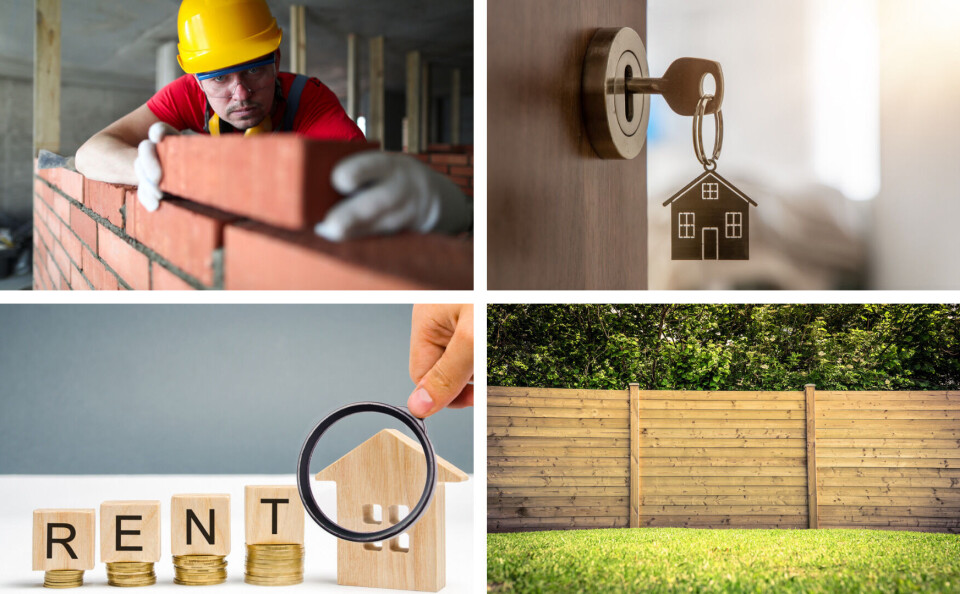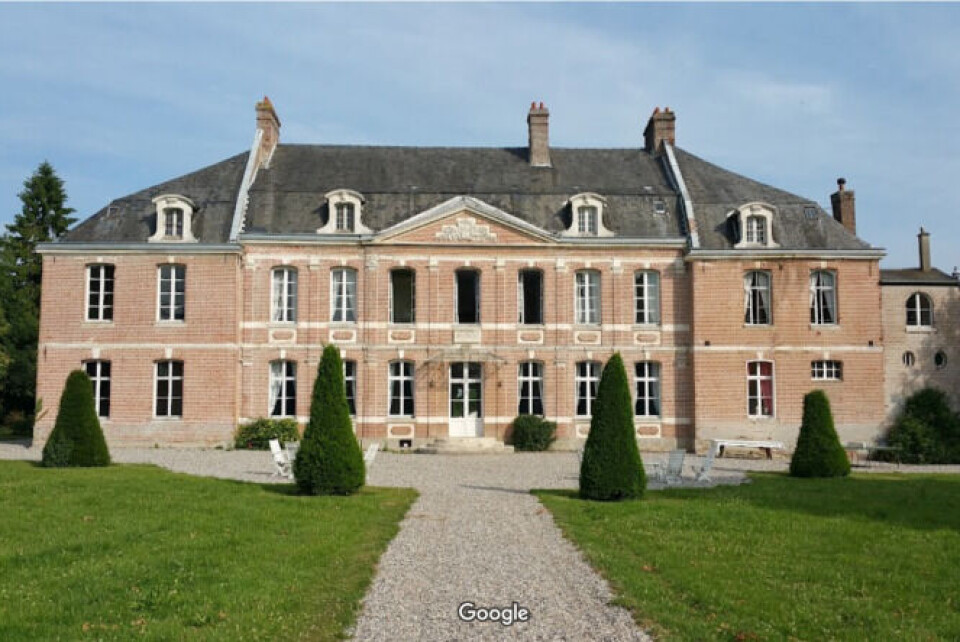-
How long does it take to sell property in different areas of France? New study
Many major cities are showing signs of recovery when it comes to supply, demand, prices, and time to sell
-
Tough Airbnb rules in Marseille prompt many property owners to sell
City council reduce time that a property can be rented to short-term guests
-
New notaire data suggests easing of Paris property crisis
Property experts have talked of ‘easing pressure’ and ‘breathing space’ after a four-year slump
Sales, cheap château, rent: Five updates for property owners in France
In our weekly roundup we also look at the rules for building a wall, fence or hedge and how to apply for planning permission online

Property sales down compared to record-breaking 2021
The volume of property sales was down 17% in the first three months of this year compared to the same period in 2021, the real estate network Orpi reports.
However, sales are still higher than in the same period in 2018, and only just lower than in 2019, the first year in which France recorded over one million sales.
The comparatively lower rate of sales at the beginning of this year is likely due to the fact that 2021 was a record year for property sales, coming on the back of a stunted 2020, when sales fell due to the coronavirus pandemic. That created pent-up demand, and also saw many projects pushed back, adding to the high number of sales in 2021.
The slowdown in sales may lead to property prices finally levelling out or decreasing.
Since the beginning of the pandemic, prices for houses have increased by 12.7% (6.4% in the past year) as demand for space (and gardens) increased after the confinement periods. Apartment prices have increased by 7.2% (3.2% in the past year) in the same period.
Property prices have increased almost everywhere in France in the past year, sometimes considerably. For example, properties listed by Orpi have risen in price by 20% in a year in Vannes (Brittany), by 23% in Toulon (Provence-Alpes-Côte d'Azur), 22% in Nantes (Pays de la Loire), 21% in Montpellier (Occitanie) and 20% in Perpignan (Occitanie).
In the space of two years the number of properties (houses and flats) being put up for sale in France has decreased by 22%, a recent study by property group Se Loger shows.
Read more: House prices soar in France: ‘Covid effect’ leads to property shortage
Read more: Pools, prices, islands: Five updates for property owners in France
18th-century château sells for €312,000 at auction
The 18th-century Château de Yaucourt-Bussus, located in the department of Somme (Hauts-de-France) has been sold this week at auction for €312,000 after its owner was forced to sell to clear debts.
The property, along with 3.4 hectares of land, was initially put up for sale at just €200,000. Several guided tours were organised in March to encourage buyers to snap up the property, which featured in a French TV show called ‘Bienvenue chez nous’.
The 500-square-metre château has a large living room and kitchen and a laundry room on the ground floor. Upstairs, there are six bedrooms and two bathrooms. The property also has outbuildings, a cellar and a large garden.
Its former owner, Christian du Perray, acquired the property in 2007 and used it as a guest house and to host weddings.

The Château de Yaucourt-Bussus. Credit: Google Street View
Rent prices expected to rise this year
There could be a record rise in rent prices this year as inflation continues to increase.
Landlords can increase tenants’ rent once per year based on the ‘indice de référence’, which itself is calculated depending on inflation rates. With inflation up (it was recorded at 4.5% up year-on-year in March), rental rates could also go up.
The last rent reference index, published April 15, shows a rise of 2.48%.
“This is unheard of,” France Télévisions journalist David Boéri said.
“It is even the highest increase since 2008, when the rent reference index was created.”
It does not mean that all rents will go up, but the index sets the maximum amount a landlord can choose to increase the rent by.
It means that, for example, a property being rented currently for €600 per month could increase to €614.88 per month.
Rules for putting up a fence, wall or hedge around your house
There are certain rules to follow if you want to put up a wall, fence, hedge or other structure to enclose your property.
Firstly, you should contact your local service urbanisme in order to consult the local planning scheme (Plan Local d’Urbanisme, or PLU).
Read more: Make sense of local rules governing planning permission around France
The easiest way to find your local service urbanisme is to type the phrase into Google along with the name of your commune.
If your commune does not have a PLU, then in towns or villages of under 50,000 people, the maximum height of a boundary fence or wall must be no more than 2.6 metres (including coping). In a town or city of more than 50,000 people, the maximum height is 3.2 metres.
Guidelines to follow when putting up a boundary structure:
-
The wall, fence or hedge should be built on your land, not your neighbour’s
-
It should not damage your neighbour’s property, or cause unnecessary obstruction to their view or their access to sunlight
-
You should speak with your neighbour before putting up a boundary structure to make sure they agree with it
-
If they disagree, you can still put up a wall, fence or hedge, as long as it conforms to all other legal requirements
-
You should check with your mairie before undertaking the project as it may be necessary to get a prior declaration of work certificate (déclaration préalable de travaux)
-
If you live near a beach or public footpath, make sure your new wall, fence or hedge is not obstructing public walkways. Ask your mairie if you are unsure, rules should be outlined in the local land use plan (Plan d’Occupation des Sols)
-
Double check with your mairie if you plan on putting up an electric fence
-
For hedges, if they are under two metres, they must be built at least 50cm from your neighbour’s property. If they are over two metres, they must be at least two metres from your neighbour’s property
-
As a note, if you buy a house with a hedge that is jointly owned by you and your neighbour, you are both equally responsible for its maintenance
We have twice featured wall disputes in our weekly property roundups, which you can read at the links below.
Read more: Boilers, walls, widows: Five updates for property owners in France
Read more: House prices, sublet scam: Five updates for property owners in France
Apply for planning permission online
If you are planning on building on your land, whether it is an extension to your house, a conservatory, a shed, a garage, a swimming pool, etc, you will need planning permission (permis de construire).
Since January 1 this year, it is possible to make this application online.
More details about it can be found at this government web page. Look into the section that matches your situation.
You will need to know whether your commune has a Plan Local d’Urbanisme (PLU) – ask your mairie. You will also need to know your numéro de parcelle cadastrale, find it at this link.
Finally, you will also need to log in to the platform using France Connect, which everyone with a French social security number should have access to.
Read more: FranceConnect: Why you may not have access to it
For more information on the PLU and planning permission, read our explainer article here:
Read more: Make sense of local rules governing planning permission around France
Related articles
Extra energy audit to protect property buyers in France is delayed
Extra €1,000 available in grants to replace a gas boiler in France
House prices soar in France: ‘Covid effect’ leads to property shortage
























